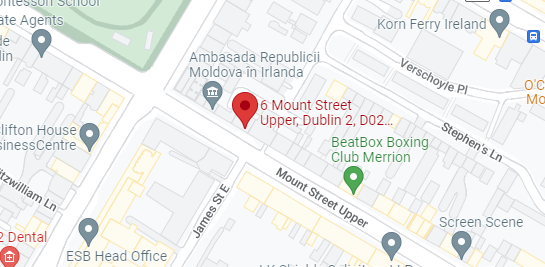There has been some significant judicial authority on the scope of legal professional privilege in recent months. The Court of Appeal has already ruled in Director of the Serious Fraud Office v Eurasian Natural Resources Corporation Limited and another and we understand that it will in due course also be reviewing the Chancery Court decision of Arnold J of 11 September 2018 in Financial Reporting Council Ltd (“FRC”) v Sports Direct International plc (“SDI”) , leave to appeal having been granted.
FRC -v- SDI: The Background
The FRC is a regulatory body which is statutorily empowered to regulate auditors and audit work. The decision arose out of an FRC investigation into the auditing by Grant Thornton (“GT”) of the financial statements of SDI and what it had understood of an “Enhanced Structure” which sought to ensure that Sportsdirect.com Retail Ltd (“SDR”), an SDI subsidiary, paid VAT on its sales to EU customers in the UK rather than in the country of each relevant EU customer. FRC sought disclosure of various communications passing between SDI and/or SDR and its lawyers which had been either shown or produced to GT in the course of its audit function to understand what GT knew of advice previously given to SDI and/or SDR which led to setting up of the Enhanced Structure. Several of FRC’s requests had met with claims of legal professional privilege.
The issues for the Court were as follows:
- whether legal advice privilege applies to documents purely by virtue of those documents having been attached to emails passing between SDI or SDR and its lawyers (“the Communication Issue”);
- whether SDI’s waiver of privilege by sending copies of documents (which were otherwise privileged) to GT for the purposes of audit extended to FRC (“the Waiver Issue”); and
- whether production of the documents to FRC would infringe any privilege of SDI (“the Infringement Issue”).
The Communication Issue
The Judge gave short shrift to the suggestion that non-privileged documents could attract privilege as a result of their being attached to communications even if the purpose of those communications was to obtain legal advice.
By way of example, the Judge rejected the suggestion that a scanned copy of the Times could be rendered privileged by being attached to such a communication. The Judge sought to distinguish the decision in Property Alliance Group Ltd v Royal Bank of Scotland plc (2015) in which Snowden J rejected the assertion that whilst legal advice privilege attached to parts of the documents, it did not attach to other parts (e.g. references to matters in the public domain) on the basis that that decision “was not concerned with a claim that legal advice privilege could be claimed for pre-existing documents”.
The Waiver Issue
SDI accepted that, in sending the emails to GT, there was a selective and limited waiver of privilege, but contended that it did not extend beyond GT or beyond use for audit purposes. FRC contended that any waiver of privilege as against GT, even if only for audit purposes, necessarily entailed a waiver as against FRC as GT’s regulator.
The Judge acknowledged that waiver was to be judged objectively and that privilege could be waived for a limited purpose without being waived generally. The Judge also accepted that extended waiver could not occur absent any “inevitable or necessary nexus” between the purpose of the initial waiver and any subsequent extension thereof for which waiver might be contended.
Notwithstanding express reference to the possibility of regulatory inspection of documents in GT’s standard terms of engagement, the Judge found there had been no waiver of privilege vis-a-vis FRC as the regulatory process was entirely distinct from audit process with “a fundamental separation of function and responsibility”.
The Infringement Issue
The Judge conceded that this was the most problematic question and considered in detail the rational of previous authority where disclosure of otherwise privileged material had been ordered, inter alia, to the Law Society (as the regulator of the legal profession) and the Revenue as the regulator of taxpayers. Overall, in reliance on the obiter comments of Lord Hoffmann in R (Morgan Grenfell & Co Ltd) v Special Commissioner of Income Tax on an earlier Court of Appeal case (Parry-Jones v Law Society), Arnold J concluded that:
“the production of documents to a regulator by a regulated person solely for the purposes of a confidential investigation by the regulator into the conduct of the regulated person is not an infringement of any legal professional privilege of clients of the regulated person in respect of those documents. That being so, in my judgment the same must be true of the production of documents to the regulator by a client.”
In acknowledging that Lord Hoffmann’s obiter comments had been the subject of some criticism, Arnold J further considered Hoffmann’s alternative reasoning that even if there were infringement of legal professional privilege, it was authorised by statute and was, in any event, “technical” only in that it did not impact on a substantive right of the client in whom the benefit of the privilege was vested such as might occur, for instance, through disclosure of legal advice received by the client with a view to bringing a negligence claim against the service provider. Arnold J rejected the suggestion that the relevant statutory wording would have to either expressly or impliedly override privilege but conceded that his overall finding on this aspect was difficult and felt bound to follow the existing less than straightforward authority.
Conclusions
Ultimately Arnold J applied existing authority. As far as the Communication Issue is concerned, it remains open to argue that the fact that documents are pre-existing does not itself necessarily mean that they might not take on a significance material to thinking behind and the confidentiality of advice sought and given in the context a client/lawyer exchange in all the circumstances? “The test remains one of relevance and purpose: the source of the information makes no difference” as per Snowden J in Property Alliance Group Ltd v Royal Bank of Scotland plc (2015).
However, the case is significant to any party finding itself caught up in an investigation by a regulatory body, such as FRC, the SRA, Her Majesty’s Revenue and Customs, the FCA, the ARB or various other bodies. The Judge in this case was clearly unimpressed in his observation that SDI’s approach in providing documentation was one of “obfuscation and delay verging on obstruction” which suggests that frank and early discussion with the relevant regulator would be prudent.
Whilst FRC successfully obtained the documentation sought, it is not clear what conditions or safeguards might be insisted on i) to prevent further release or reliance for any other purpose, for instance, as a consequence of any finding or other publication that may issue as a result the relevant investigation; ii) to understand the precise identities of individuals to whom such potentially highly sensitive information may be disclosed and to limit such numbers; and iii) by way of assurance as to the location and method of storage. Any client that finds itself in this position will not doubt wish to engage to ensure that these matters are explored thoroughly by its legal advisers before documentation is released and to seek to ensure that all relevant documentation is returned once the investigation is complete. In the meantime we await the Court of Appeal’s consideration of the decision.
This article was written by Peter Campion, Senior Consultant



